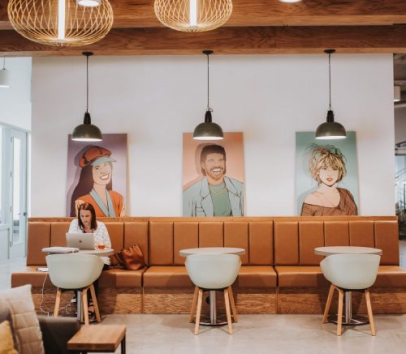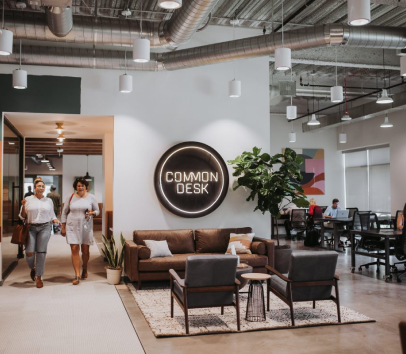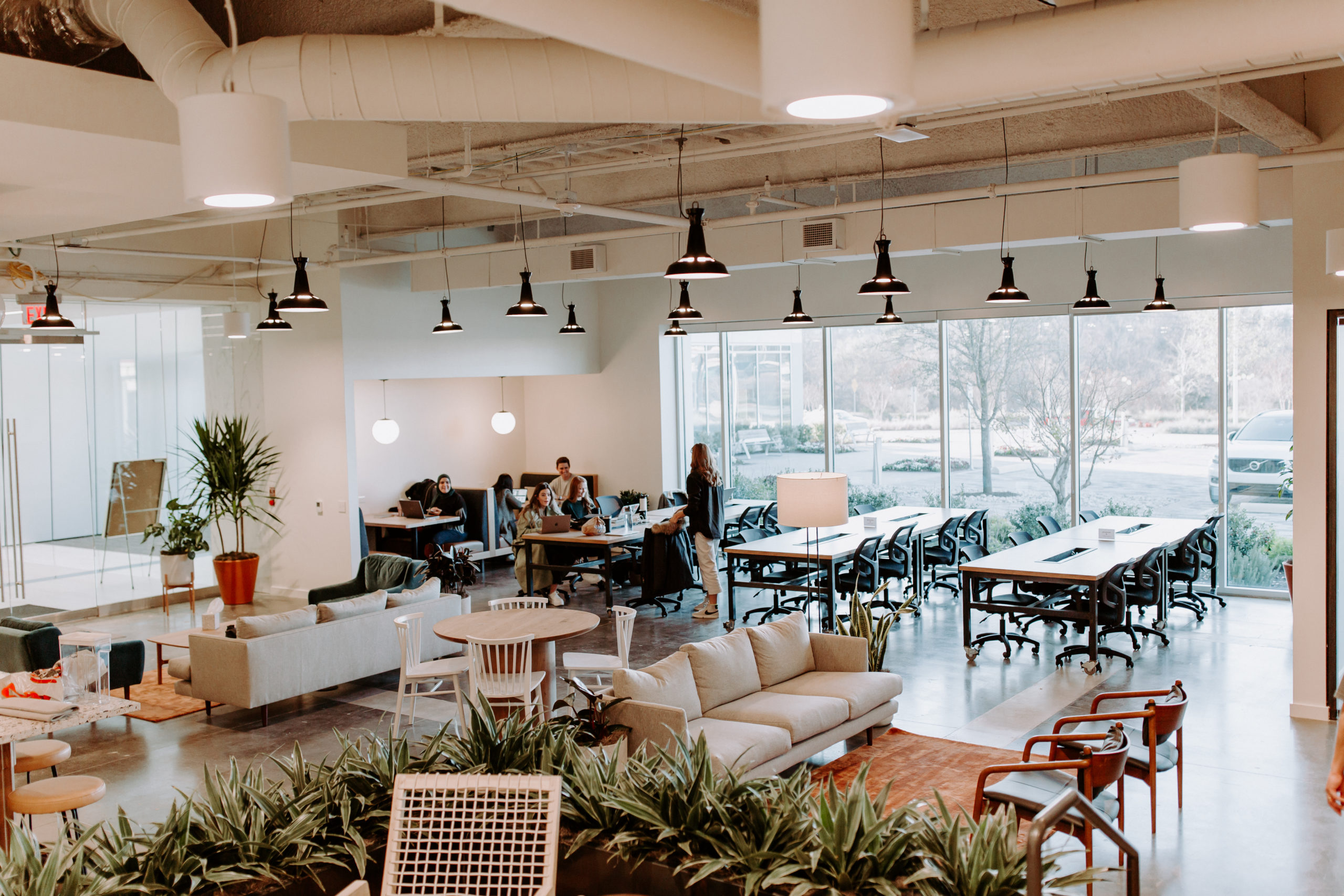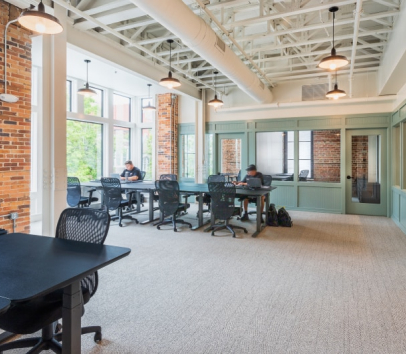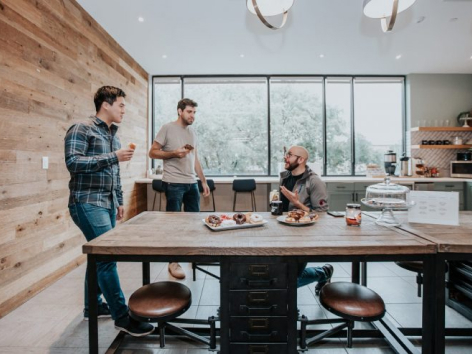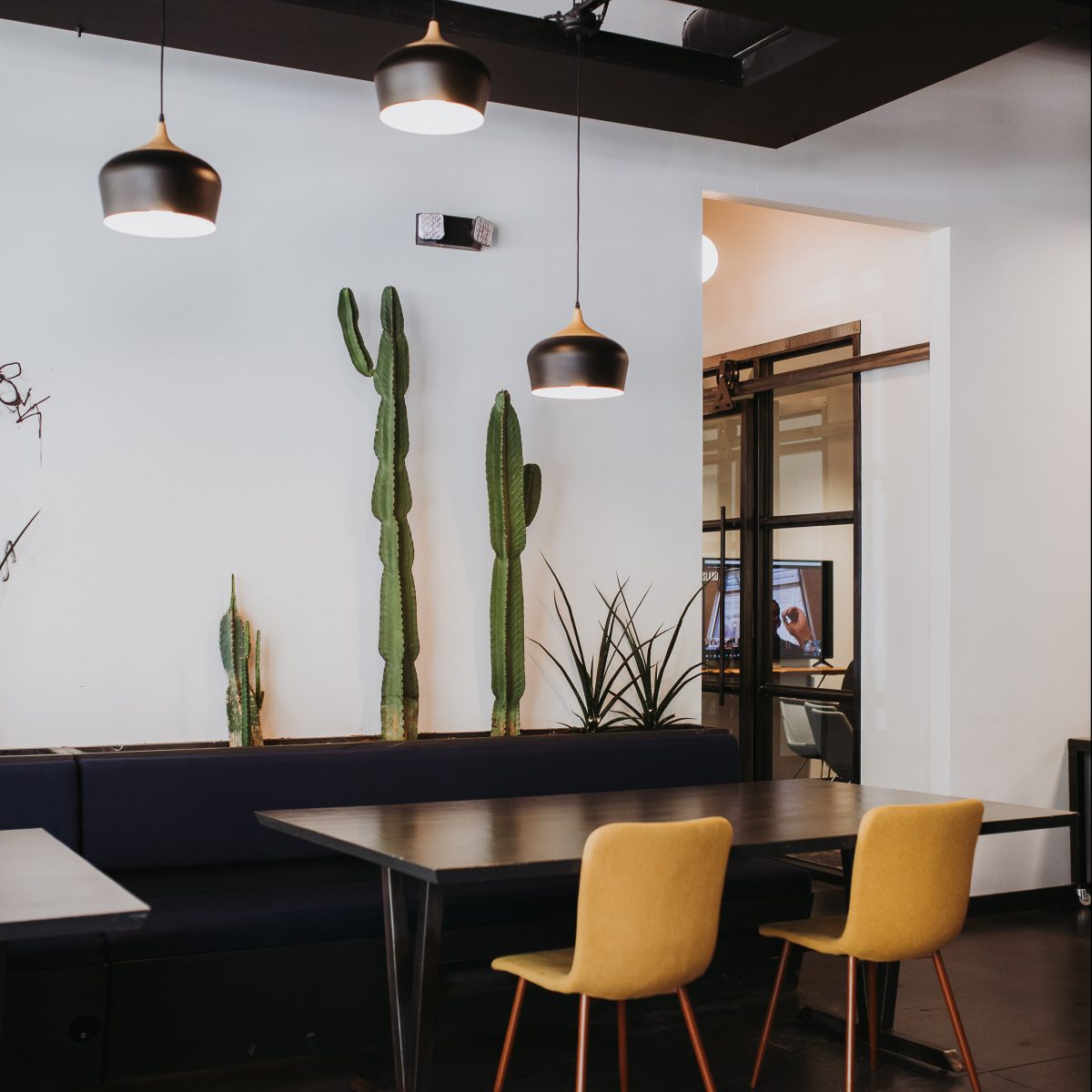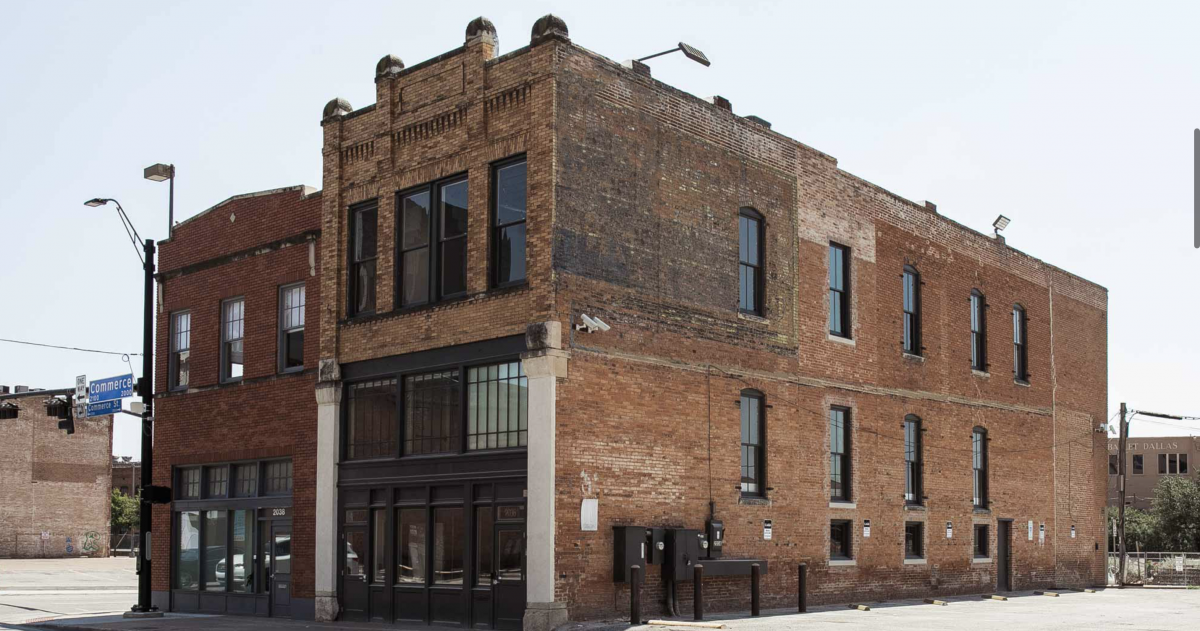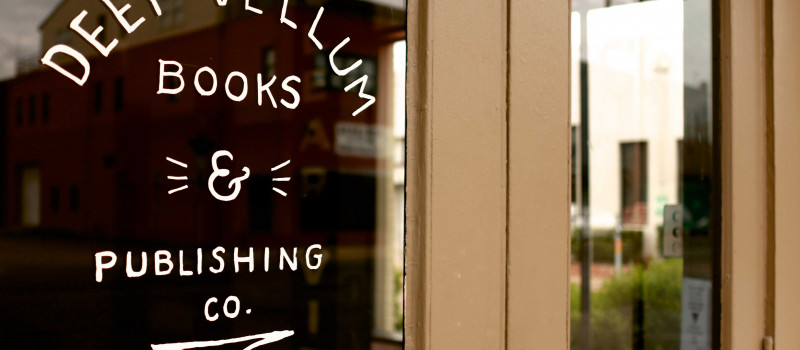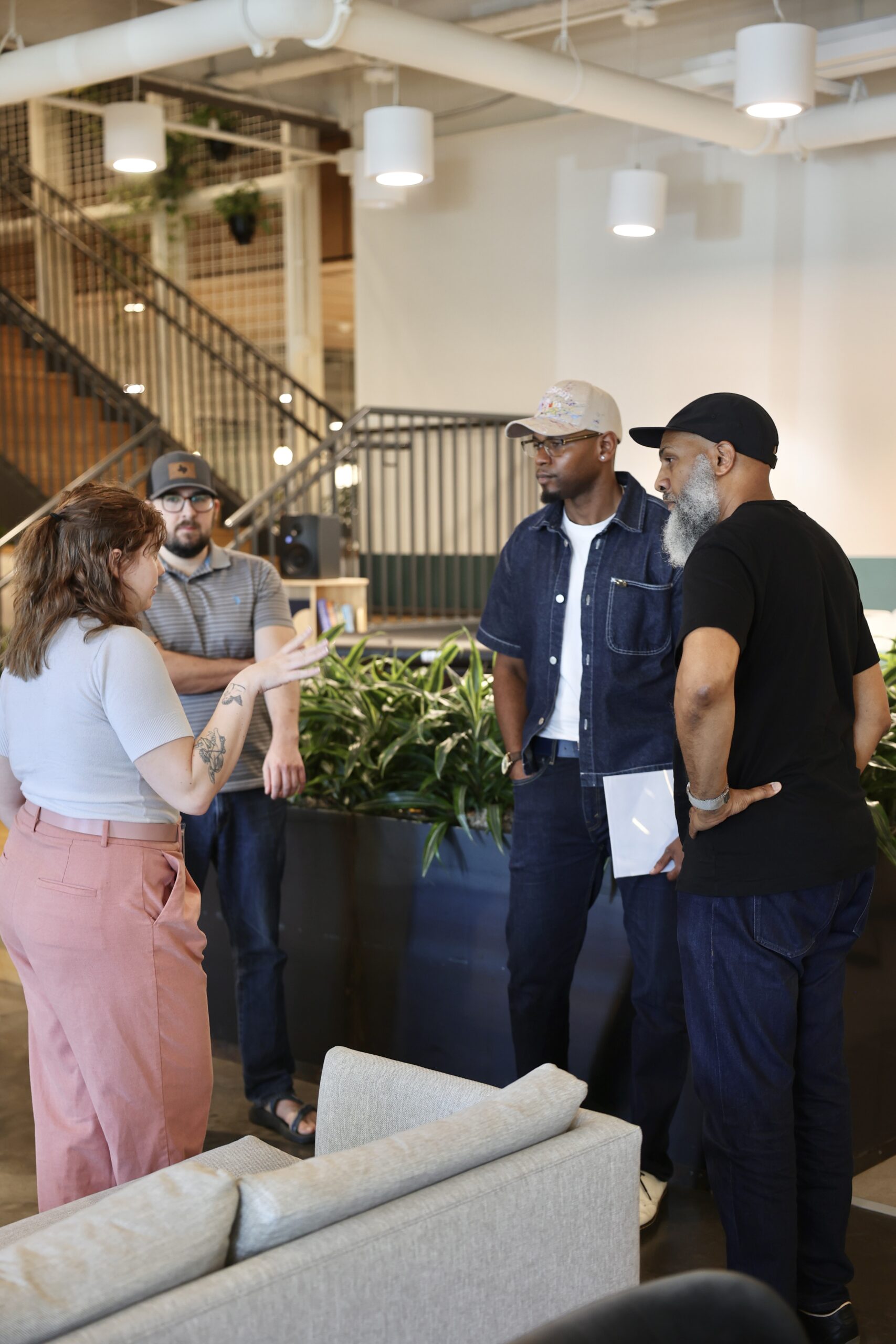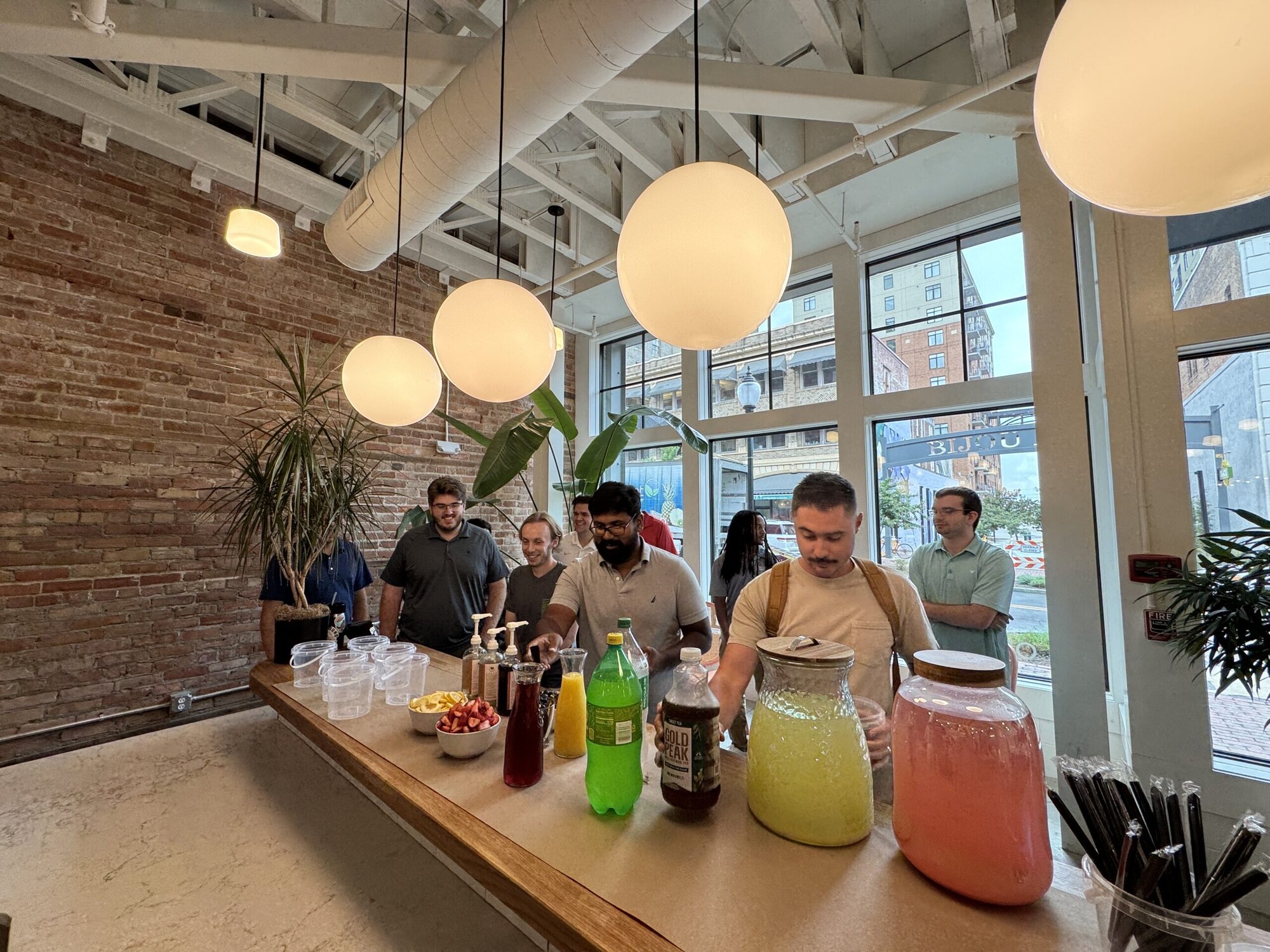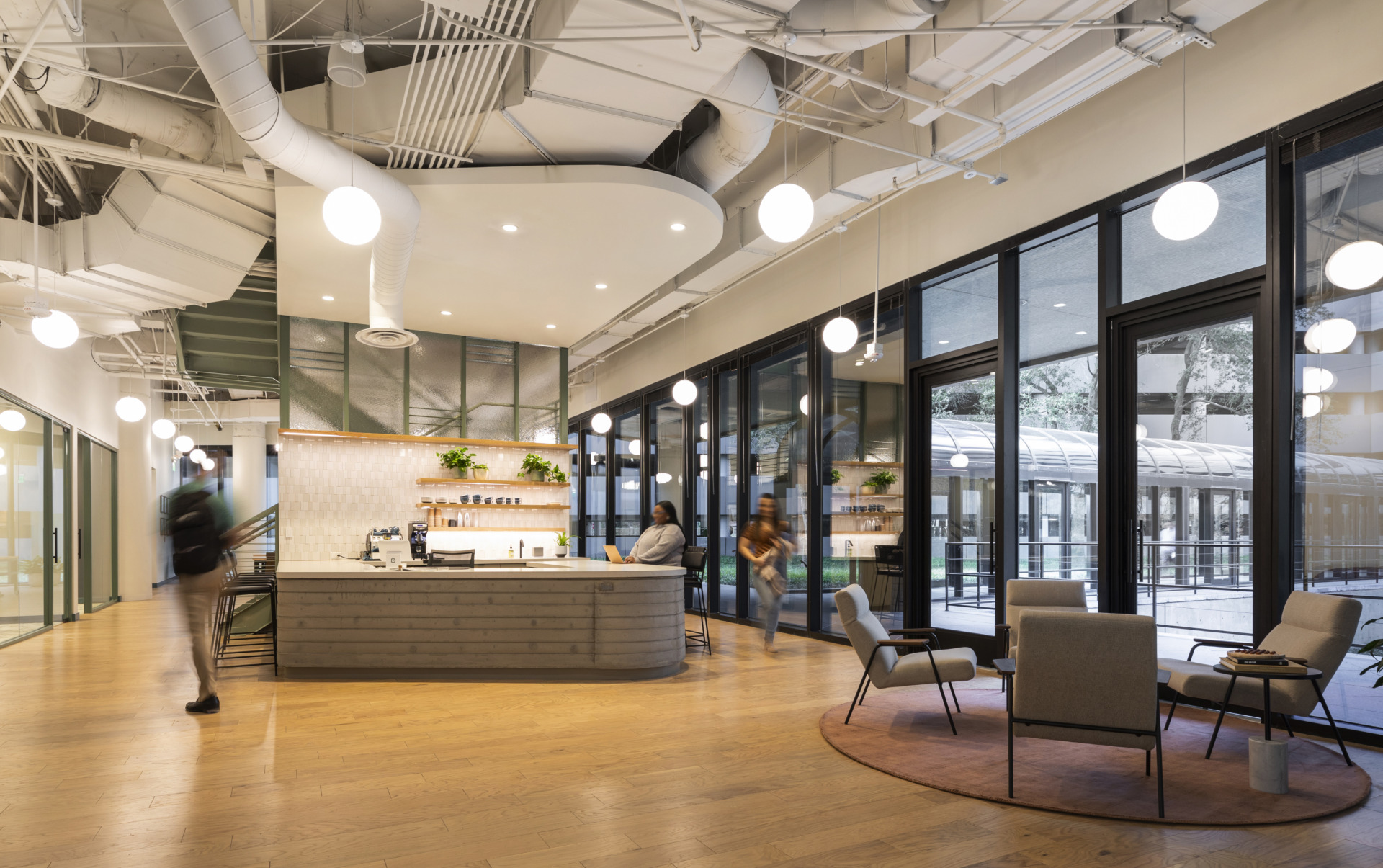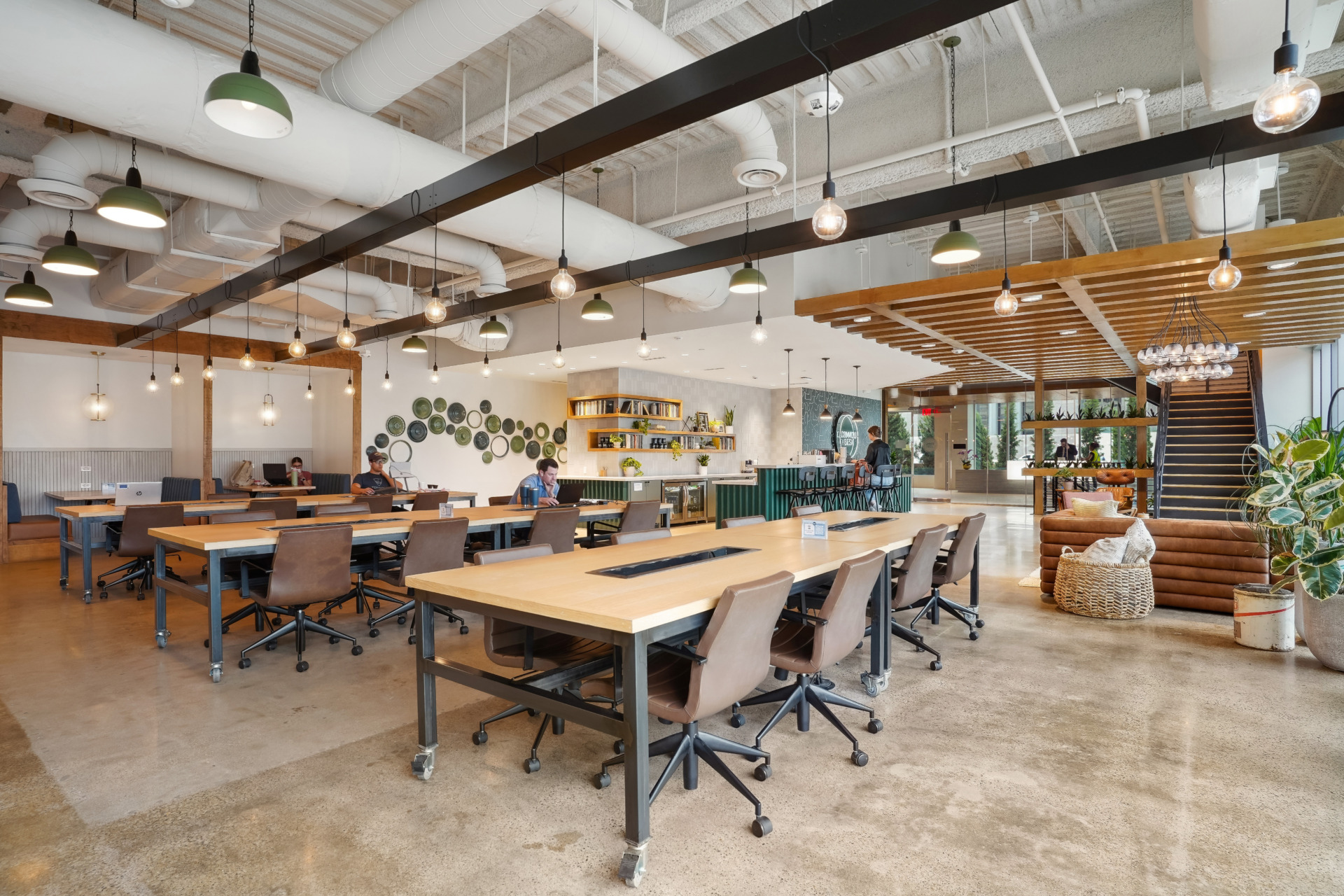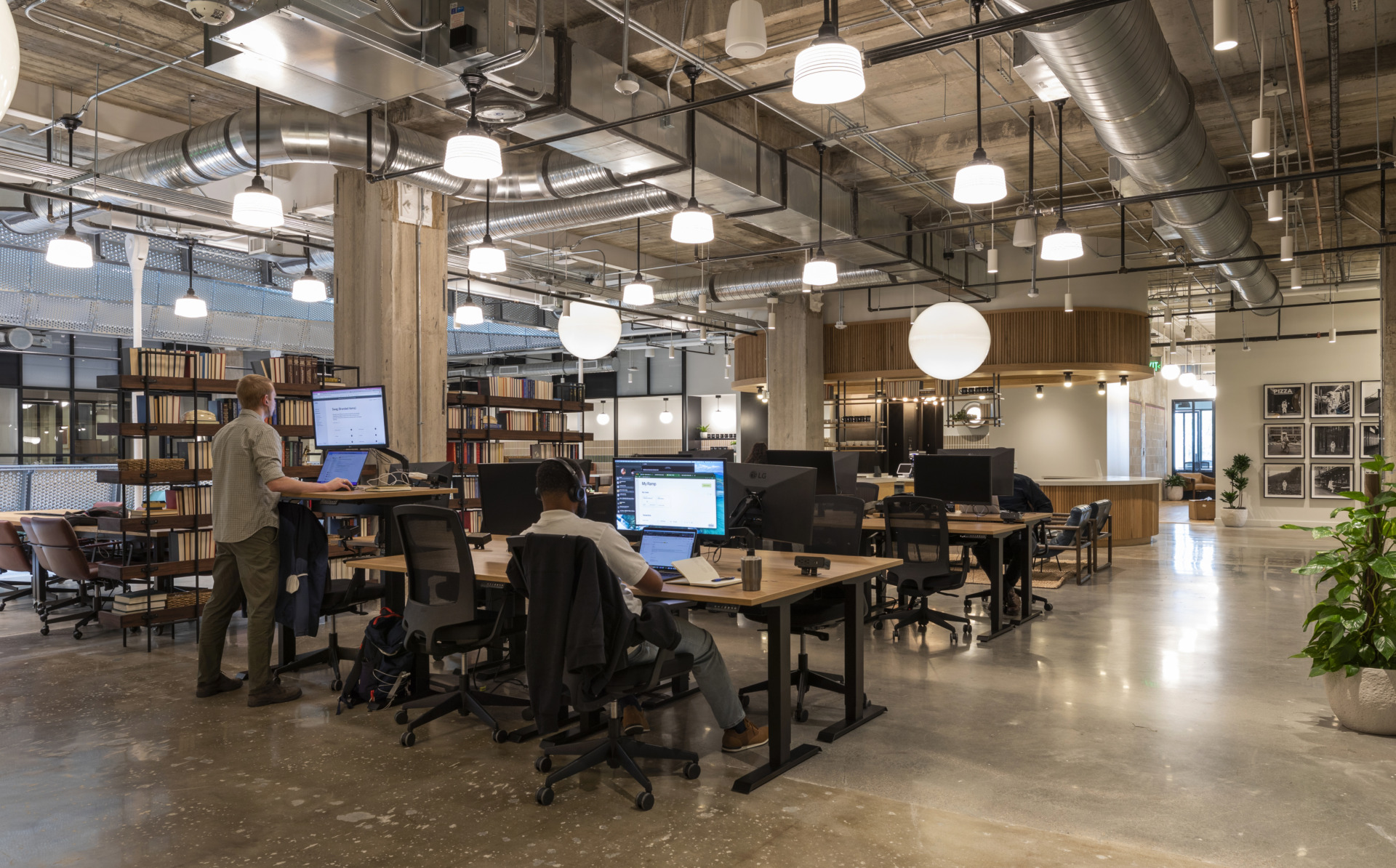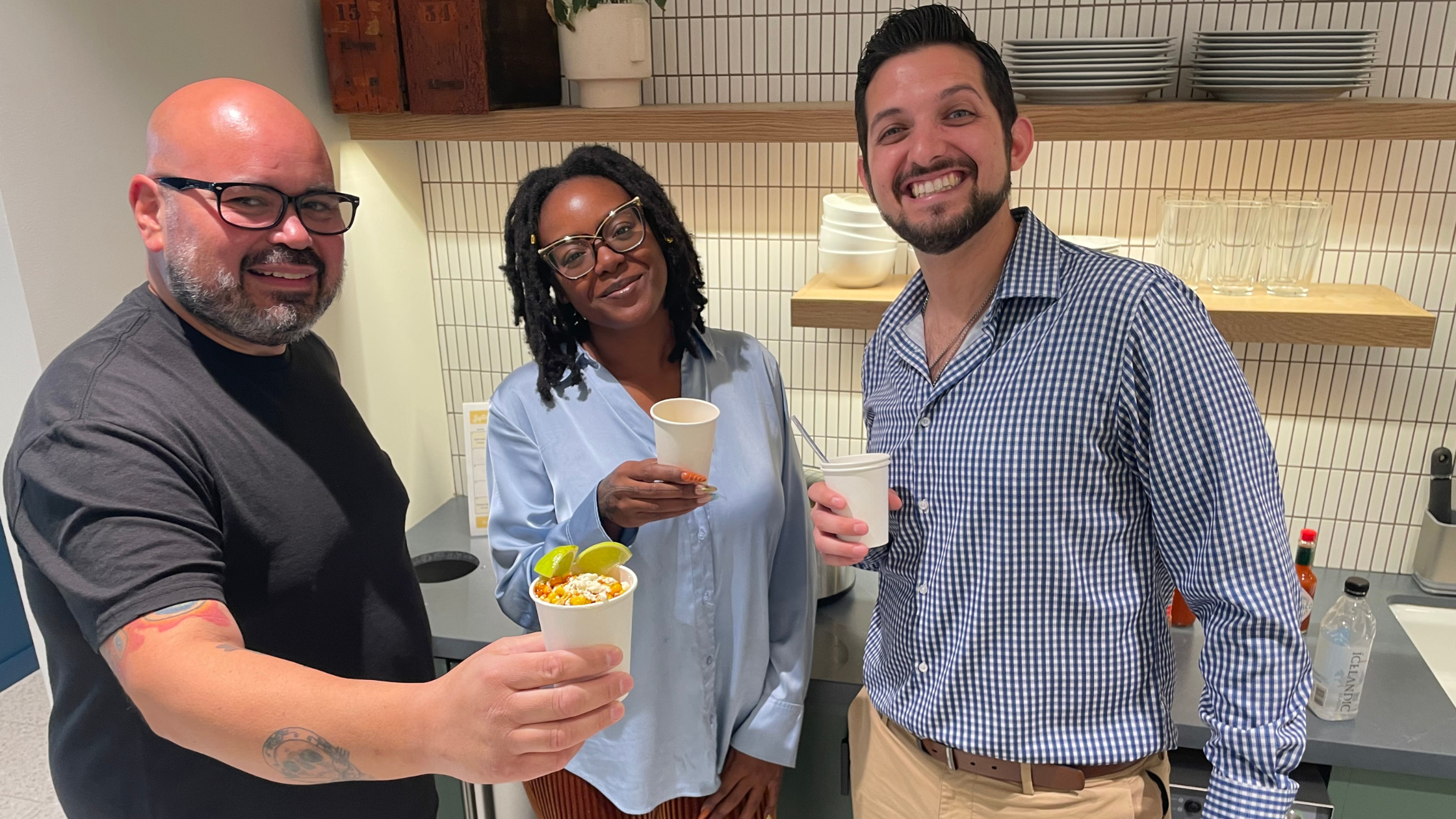Dallas publisher and Common Desk alum Will Evans has a one-of-a-kind passion: translating Russian literature into the English language. It may sound like tough work to most of us, but for Will there’s nothing better than getting inside an author’s head to create the most accurate translation possible.
That’s why he founded Deep Vellum Publishing in 2013, with a mission to publish the best books in the world — regardless of their original language. Here’s what he had to say about the tricky process of starting Deep Vellum:
Are you from Dallas?
I grew up in Wilmington, North Carolina and went to graduate school in Durham, North Carolina.
When did you decide to get into the publishing business?
In graduate school, I got into translation. I studied Russian and Russian literature. I was wondering why more contemporary Russian literature wasn’t published in English. With that basic question, I started doing research. I started to learn how few books in translation are published every year.
While I was doing this I also read the blog of a publisher that does a lot of translation and education about the lack of translated books being published. The publisher is based out of the University of Rochester, and the publishing house is called Open Letter Books, which has a blog called 3%. One of their blog posts stated that if you care about the issue, then you should start your own publishing house. I said to myself, that’s interesting. My wife was offered a job in Dallas, and I wondered, what am I going to do in Dallas with a Russian degree? I started looking around with the idea that publishing might be a thing. I did some research and discovered that the last literary publisher in Dallas had just closed. There seemed to be a gap in the market, so I decided to start a publishing house. I wanted it to be set up as a nonprofit, focusing on the arts while also selling some books. That’s how I founded Deep Vellum when I moved to Dallas 2 and a half years ago.
Why did you decide to make Deep Vellum a nonprofit organization? Is that typical in publishing?
It’s not typical, but it’s not uncommon. Outside of New York City, it’s more common. Over 90% of book publishers are based in New York City, where most of the publishing industry is based. Outside of New York, most of the publishers are university presses that are all nonprofit. There are also several independent nonprofits that I have modeled my business on. Including three publishing houses that are all based in Minneapolis. They are nonprofit and have been around for a long time. They do amazing work, publishing amazing books as well as amazing literary community events. Minneapolis as a city and how they support the literary arts is a huge inspiration for why I set up Deep Vellum as a nonprofit.
I looked at Dallas and I saw an exciting city- one that is molding into what Dallas in the future is going to be, but there were few literary organizations here.
I started Deep Vellum as an art-based, mission-based, community-focused nonprofit. We publish translated literature, and I’m able to explore the issue of literature and translation from a different angle.
In commercial publishing the sales are first. We, however, put the reader first. We prioritize the connection between the reader and the author, and then sales come with that. Along with a growing arts community outside of the elite institutions, Dallas has a strong nonprofit community. I want to be a part of that change of the smaller and mid-sized arts organizations.
The publisher I look to for inspiration is City Lights out of San Francisco, which has been around for 60 years. They started as a bookstore and became a publisher; we are going the other way.
Are there any successful bookstores that started off as publishers?
It’s not uncommon for bookstores and book publishers to have relationships. Usually, it starts with a bookstore, and then they start publishing after they get to meet authors and writers. They know they have good taste, and they have their community at the bookstore. They think if they know their community then they know all the readers, and sometimes that’s true. I’m coming at it from the same angle, except Dallas does not have a large variety of bookstores. There is only one other independent bookstore in Dallas. I’m trying to fill in the gap in this market- to sell our books and other people’s books by hosting the events that we want to see in Dallas. I want to make Dallas a more literary, vibrant, and inclusive space where literature is at the heart of it all.
Translated books are less than 3% of literary works, is that accurate?
3% refers to how many books are translated from other languages into English. English language literature, just like English language films and music, is a huge export, and we don’t import much. Few books here are translated from different languages- not that they don’t sell and not that they aren’t amazing, but the commercial publishers are increasingly owned by corporate structures. They demand a certain profit margin, and translated literature doesn’t necessarily fit into that; literature as a whole doesn’t fit into that. It’s hard to tell what’s going to sell in literature.
So with that being said, 3% is a rough estimate. There are about 400,000 books published every year in the US, and of that number about 3% are translated; this encompasses everything published in English: textbooks, cookbooks, poetry, translations of The Odyssey or any classic works. When you actually break it out into literary works, especially new translations, that number is actually closer to .01 percent, with just a few hundred books published every year. If there are 500 books translated this year, that’s still a lot of books, but it’s quite small in the grand scheme of things. And so to be a part of that, we’re not trying to get from 3% to 4%. How do we get people to read the books that we publish and translations in general and to appreciate that they’re translated? That’s the movement that we are all a part of.
Compared to other developed countries in the rest of the world, the United States have the lowest amount of books being translated. In France, for example, between 15% – 25% of books are translated into French. Norway is close to 50%, and in the Netherlands, 75% of books are translated into Dutch from many different languages.
When I look for books out there in the rest of the world, I have the pick of the litter. I can pick best sellers, award winners, Nobel Prize winners, I can pick anything I want at any given time. It’s quite interesting to create a list based on that.
What formats are your books available?
We do print books, we have eBook rights, and we also record our books.
What platforms are your eBooks available on?
Kindle, The Nook, Google Play, and Kobo. The best thing about Kobo is that it doesn’t tie you to one platform. If you buy a book on Amazon, it goes straight to your Kindle, meaning you can’t ever read it on another device. Kobo is much more open and supportive of independents.
How do you decide on the next book you’re going to publish?
I wish there was a secret formula. I haven’t figured it out. I’m the only guy choosing, so I pick books that I’m interested in: books that speak to me, books that I want to read, books that I feel are important, that fill a gap in our culture and by authors that are amazing in their own way.
A couple of things that guide me as I go looking are that I try to maintain diversity among authors from all over the world, not just Europe, because it would be easy to fall into that trap. I also try to maintain gender diversity. We have men and women authors in equal numbers and authors from 5 continents in our first year, which is amazing. We already have all 5 main continents where English is not the main language spoken. However, we don’t yet have Oceania and Antarctica.
When it comes time to actually look for the books, the main sources are to be a part of the international publishing community. I go to international book fairs in Frankfurt and London among others. Frankfurt is the biggest and oldest book fair in the world. Those are the two main international book fairs for finding out about what’s going on, who’s publishing what. It’s where you go to buy and sell the rights to the books.
The third and most important I would say is in Guadalajara Mexico. It’s the biggest book fair in Latin America and an amazing experience. At these book fairs, we meet with foreign publishers, literary agents, international authors, and translators, along with cultural organizations from international groups that support the literature of their country or language. For example, at the Frankfurt book fair, I might meet with the Icelandic Literature Fund, the German Book Office, or the Dutch Foundation for Literature. When meeting with these people, they have curated lists of books that are highlights of what came out in Holland or Germany or Iceland that year. They also offer programs so that should you want to publish these books, they will offer support in the form of grants for the actual translation, which is the most expensive part of what we do. They can also help support marketing or bring authors to the US for a tour. The translators are the ones that make it all possible. If a translator I know and like supports a book, then we’ll go after it.
What is your vision for the physical bookstore in Dallas?
I envision the bookstore to be a literary community center- a place where you can come together with the written, spoken, performed word in the middle of it. I envision the bookstore as its own attraction and a cafe that serves craft beer, wine and premium coffee. We will be holding events seven nights a week in the realms of literature, music, film, art, etc.
We want to open a bookstore as an extension of Deep Vellum to create a literary community and to offer something amazing. There is only one other independent bookstore in Dallas and we need a lot more. We need more authors, more book stores, more events and I want to be part of the change. It also gives us a place to have the publishing house office. We can have the office in the back and the bookstore up front, a perfect symbiosis or synergy you could say.
It’s going to be a space where everyone comes to feel inspired and dialogs are taking place. The vision is to have this place that’s going to be part of the Dallas literary community, along with the Dallas art community and the Dallas community proper. A place to come together and hang out- that’s what we’re working towards.
Support the new bookstore here: http://deepvellum.org/bookstore/
Similar articles:
http://www.theverge.com/2015/11/2/9661556/amazon-books-first-physical-bookstore-opening-seattle
http://www.earthporm.com/magical-new-bookstore-opens-its-doors-in-romania/
http://www.rochester.edu/College/translation/threepercent/
https://www.graywolfpress.org/

